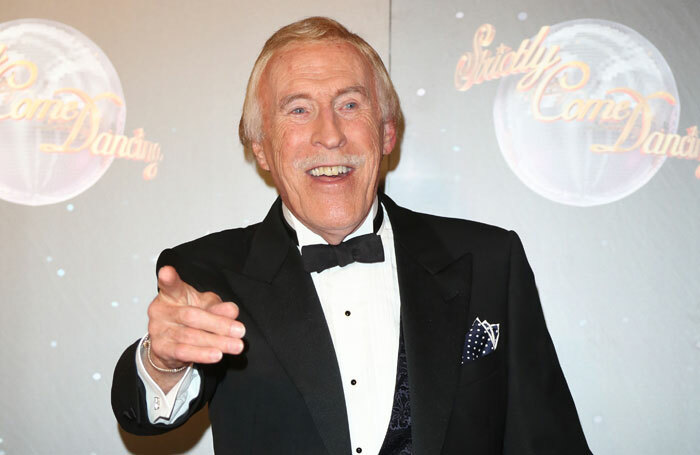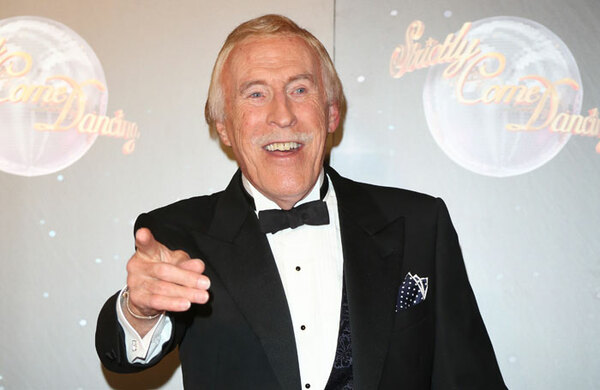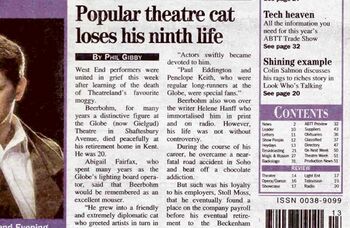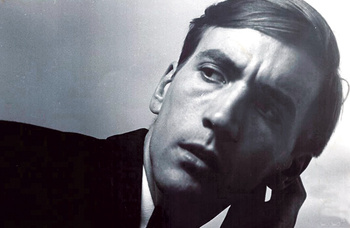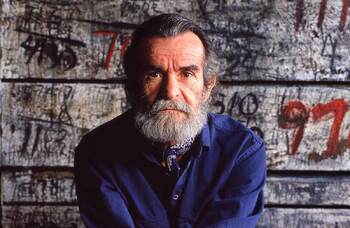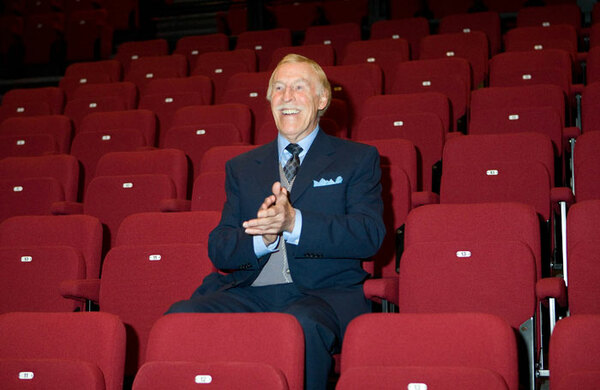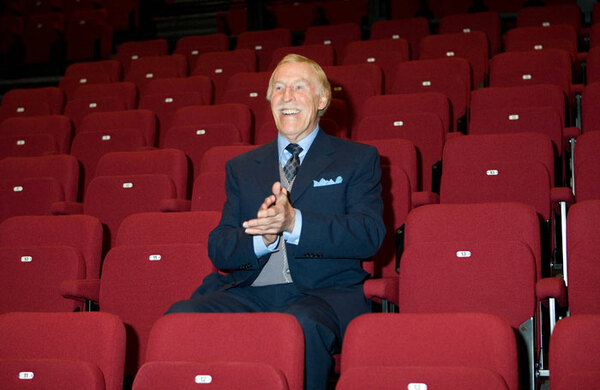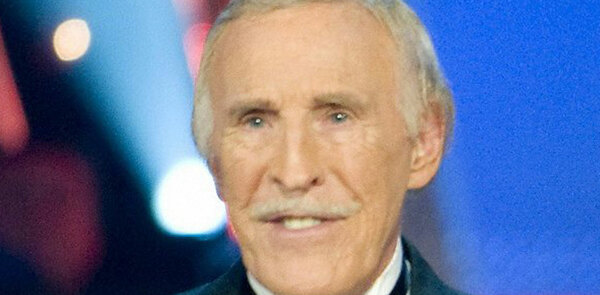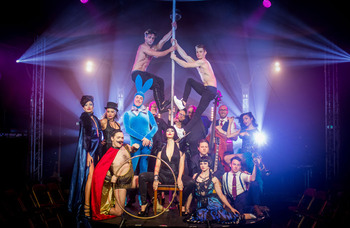Obituary: Bruce Forsyth
No entertainer stamped his personality on prime-time television with such authoritative energy and charismatic zeal as Bruce Forsyth. In every decade from the late 1950s until his retirement due to failing health in 2014, he dominated weekend viewing habits with a string of popular, long-running shows.
The secret of his success lay in a winning combination of innate talent – honed from childhood in variety halls, the club circuit and summer seasons – together with a Herculean appetite for working, a thirst for perfection and the creation of a larger-than-life persona whose rapport with audiences – described by The Stage as long ago as 1966 as “a disarming ‘matey-ness'” – was second to none and fully reciprocated.
Forsyth often insisted on keeping the house lights up for his stage appearances, telling The Stage: “Because everything I do on stage is quick, on the double, I’m always aware of everything and everybody when talking to an audience. I can’t work to a black, empty space. I need to see what’s going on.”
An acquired taste for some, he simultaneously appeared on lists of best- and least-loved performers and claimed some ambivalence about his own stage self, referring to him as “Brucie” and insisting “I couldn’t stand to be him all the time. He’d drive me crazy”.

But such was the affection he was held in that his death was marked by front-page news stories and multi-page newspaper supplements, several of which paid tribute with one of his many catchphrases: “Didn’t he do well?”.
By the time of his retirement, Forsyth had earned a place in the Guinness Book of Records as the world’s longest-working and most established television entertainer. It was just the latest in a long litany of accolades throughout his career that had seen him variously crowned “the incredible character”, “the king of game shows” and “Britain’s greatest entertainer”.
Born in Edmonton, north London to parents who both played in the local Salvation Army band, he showed a precocious interest in performing and made his small-screen debut with a song-and-dance routine at the age of 11 on the BBC’s then fledgling television service in 1939.
The outbreak of war proved an unexpected boon for the young but ambitious would-be star. With the club and variety circuit starved of adult performers, Forsyth found himself in demand, billing himself with unabashed confidence in his abilities as “Boy Bruce, the Mighty Atom”.

In 1949, he made his first appearance at the Windmill Theatre, where he met and later formed a double-act with the dancer Penny Calvert who became his first wife in 1953. On his return to television in 1954’s Music Hall, he was hailed as “one of TV’s most promising finds”.
During a three-year spell with Hedley Claxton’s Gaytime productions in Babbacombe, Devon, Forsyth was spotted by producer Val Parnell, then looking for a replacement for Tommy Trinder, the departing host of television’s Sunday Night at the London Palladium. Booked for three weeks, Forsyth remained for six years, acquiring along the way an audience that stayed loyal to him throughout his career and the first of a long list of catchphrases.
“I’m in charge!” also provided the title of his solo tour in 1959. A year after his first Royal Variety Performance appearance (he later compered 12 of the annual events and appeared in many more), it broke several box office records during its run. So too did his 1964 residency at cabaret mecca the Talk of the Town, where he occupied the star spot more often than any other performer.
He ventured into musical comedy in 1964 to considerable success, playing seven different parts in Neil Simon and Cy Coleman’s Little Me at the Cambridge Theatre in the West End. It was, he told The Stage’s Patrick Newley in 2003, “the best thing I ever did”.
His first straight television play followed in 1966 – as the eponymous Canterville Ghost in Giles Cooper’s Oscar Wilde adaptation – and his straight theatre debut three years later in Peter Yeldham’s Birds on the Wing at the Piccadilly Theatre. In between, he was seen as the father to Julie Andrews’ Gertrude Lawrence in the 1968 Hollywood musical Star!.
Film stardom eluded Forsyth himself, a last-minute contract resolution with Ron Moody robbing him of the role of Fagin in Oliver!, although he provided a nifty turn as a song-and-dance man in Disney’s Bedknobs and Broomsticks alongside Angela Lansbury in 1971.

The wider success he craved in America also never materialised. His sole foray on to the Great White Way – Bruce Forsyth on Broadway! – lasted just six performances in 1979. A US game show, Bruce Forsyth’s Hot Streak, was cancelled after 65 episodes in 1986.
At home, he had never been more successful, the launch of The Generation Game in 1971 – with his signature catchphrase “Nice to see you, to see you nice” and iconic conveyor belt of lacklustre prizes – heralding a television profile that endured into the present decade.
His appearance in a 1964 West End musical was, he told The Stage in 2003, “the best thing I ever did”
There were flops along the way. His only sitcom, Slinger’s Day, in which he played a supermarket manager coping with incompetent staff, was met with a lukewarm response and lasted two series from 1986-87.
But the success of the game shows Play Your Cards Right, You Bet! and Bruce’s Price Is Right ensured Forsyth a prominent place in TV schedules throughout the last decades of the last century, the axeing of Play Your Cards Right in 2001 prompting an angry, and premature, announcement of his retirement.
In 2003, a guest appearance on Have I Got News for You led to his co-hosting 118 episodes of Strictly Come Dancing with Tess Daly over 11 years until his eventual retirement in 2014. It sealed his status as “the face of Saturday-night television”.

Marking his 70th anniversary in showbusiness, he was seen at the Royal Albert Hall in 2011, although a planned appearance with Liza Minnelli at the London Palladium in 2015 was cancelled.
A keen golfer, Forsyth was for many years captain of the Vaudeville Golfing Society.
He was awarded an OBE in 1998, a CBE in 2006, knighted in 2011 and given a BAFTA fellowship in 2008. In 2005, a bronze bust designed by his son-in-law Dominic Grant was unveiled at the London Palladium.
He published two volumes of memoirs: Brucie (2001) and Strictly Bruce: Stories of My Life (2015).
Bruce Joseph Forsyth-Johnson was born on February 22, 1928 and died on August 18, aged 89. He is survived by his two ex-wives, Calvert and Generation Game co-presenter Anthea Redfern, and by his third wife, Wilnelia Merced, winner of the 1975 Miss World competition, and six children.
Latest Obituaries
More about this person
More about this organisation
Most Read
Across The Stage this weekYour subscription helps ensure our journalism can continue
Invest in The Stage today with a subscription starting at just £7.99
